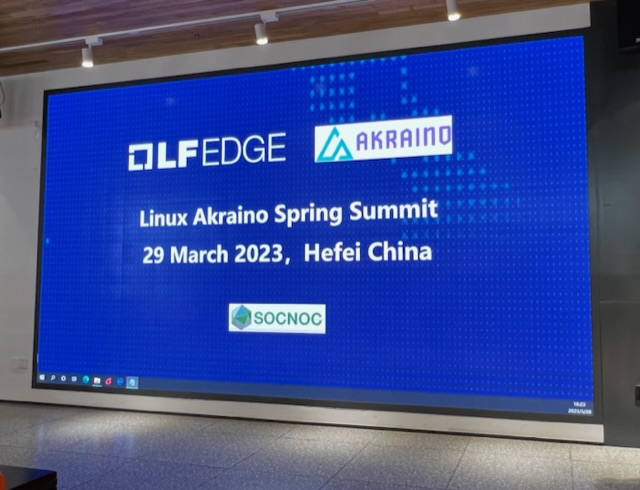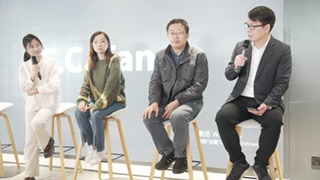Date: March 29, 2023
At the Hefei High-tech Integrated Circuit Incubation Center in Anhui Province, a panel discussion moderated by Guanyu Zhu from Huawei's Cloud Network OSDT team brought together experts from the Akraino and CAMARA communities, along with industry professionals, to explore the significance of APIs in edge computing and the potential for collaboration between the two communities. Prominent panelists included Tina Tsou, the Chairman of LF Edge , Leo Li from Akraino TSC, Gao Chen, the senior engineer from China Unicom, and Shuting Qing, the open-source ecology expert from Huawei's Cloud Network OSDT.
Shuting Qing provided insights into the origins of the CAMARA project, explaining that "Capability exposure aims to encapsulate these capabilities into a simple interface and expose it to developers for everyone to use." CAMARA is a vital initiative designed to generate new revenue streams for European operators that have made substantial investments in 4G/5G networks. Qing emphasized the need to clarify the value scenarios and focus on monetization.
Leo Li discussed Akraino's eagerness to collaborate with emerging communities like CAMARA, emphasizing the need for standardized edge computing hardware modules and the adoption of novel hardware interface technologies such as Ethernet, PCIe, and UCIe. Li highlighted the importance of integrating standardized hardware with an API-based business development model, stating, "We hope to further enhance the business flexibility of operators while promoting hardware standardization, and reduce costs and power consumption through standardization in conjunction with the trend of service APIization."
The panelists also shared their views on the commercial realization of telecom edge cloud. Gao Chen emphasized the standardization of east-west interfaces, highlighting the importance of providing a unified and user-friendly API to access network capabilities, while Tina Tsou pointed out the potential benefits for various stakeholders, noting that "Edge computing can provide better performance and services, thereby increasing customer loyalty and revenue."
Addressing potential challenges in implementing commercialization ideas, Leo Li indicated that "We believe that cost will be a crucial factor in the monetization process of edge cloud." He advocated for standardizing hardware specifications and implementation methods and adopting an API-based business development model to minimize costs.
Tina Tsou expressed her expectations for the CAMARA community, emphasizing the need for more flexible and customizable edge computing capabilities, stronger equipment and data management capabilities, and enhanced security and credibility guarantees. She also called for increased cooperation with other open-source projects.
Shuting Qing and Tina Tsou shared their thoughts on how Akraino and CAMARA could work together to create a more open, collaborative, and innovative edge computing ecosystem. Qing considered that since CAMARA is discussing capability exposure, it would be worth exploring the integration of edge computing open capabilities, such as ETSI MP1, into the CAMARA. Meanwhile, Tsou proposed combining edge computing framework, openness, security and privacy protection, and application scenario expansion.
The panel discussion offered valuable insights into the role of APIs in edge computing and the potential collaboration between Akraino and CAMARA. As the industry continues to develop, the joint efforts of these two communities could result in a more open, collaborative, and innovative edge computing ecosystem that benefits all stakeholders.

